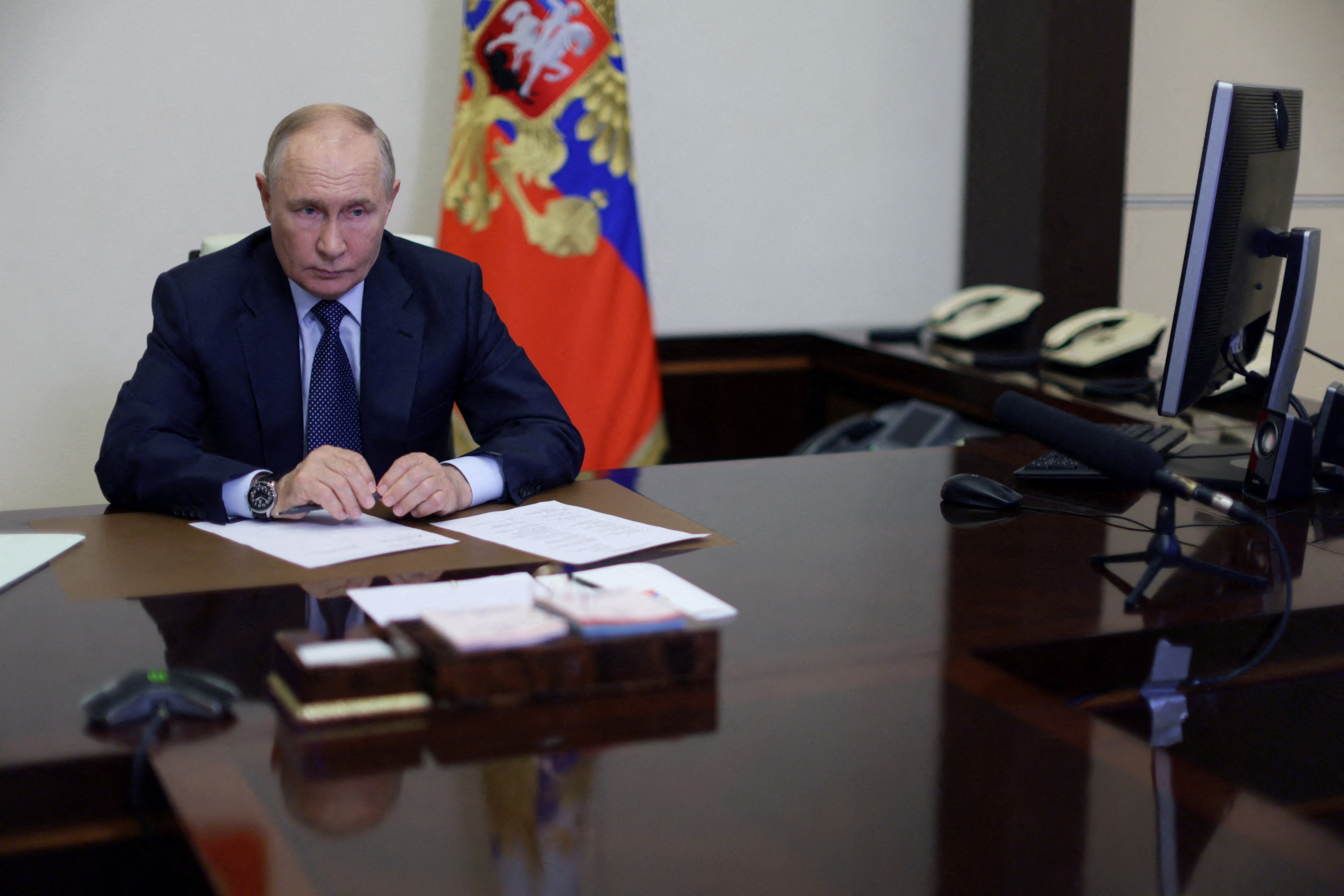Zelensky’s latest reshuffle has one major aim – to project strength ahead of a tough winter for Ukraine
Despite the morale boost provided by the audacious attack into Russia’s Kursk region, airstrikes and battlefield losses in eastern Ukraine are piling the pressure on President Zelensky, writes Chris Stevenson


Dmytro Kuleba is one of Ukraine’s most recognisable faces to Western officials, seemingly never afraid to speak his mind. It is that independence that has contributed to the foreign minister becoming the highest-profile member of president Volodymyr Zelensky’s cabinet involved in another major shake-up of Ukraine’s top brass. One which will end up the largest of the war.
Kuleba has offered his resignation as part of what is seen as a political “reset” for Kyiv engineered by Zelensky and his close circle. A number of other ministers also submitted their resignations on Tuesday. Zelensky has said that the cabinet overhaul is part of an effort to “give new strength” to Ukraine’s government and, in the process, solidify Zelensky’s ability to guide policy.
Kuleba, a career diplomat, has been in the foreign ministry since 2020 and saw numerous reshuffles of both the cabinet and military in the more than two years since Russia invaded in February 2022. Zelensky has replaced the defence minister, the commander-in-chief of the armed forces, the heads of Ukraine’s foreign and domestic intelligence services and the national security office during that span, often at points when the situation on the battlefield has been difficult.
Ukraine’s cabinet has a number of acting ministers, who cannot vote on decisions, and Zelensky was clear that his nation needs a solid government as winter approaches. “Autumn will be extremely important for Ukraine. And our state institutions must be set up in such a way that Ukraine will achieve all the results we need – for all of us,” Zelensky said in his evening address on Tuesday. “To do this, we need to strengthen some areas in the government – and personnel decisions have been prepared.”

The reshuffle comes at a crucial point. Ukraine has been slowly losing territory in the eastern Donetsk region to a Russian advance, while drone and missile attacks on the country’s energy infrastructure have led to rolling nationwide blackouts, which are likely only to worsen as we head towards winter. An audacious cross-border assault into Russia’s Kursk region, where Kyiv’s forces have taken about 1,000 square kilometres of territory in around three weeks, has given a much-needed morale boost and reminded Western allies that Kyiv can still surprise its enemy, despite being significantly outgunned and at a troop disadvantage.
The timing of the cabinet reshuffle – which is said to have been in the works for months – may be partially aimed at backing up that assault, with Zelensky showing allies like Washington and London that he will make the decisions required to give Ukraine the best chance against Moscow. With US elections in November – which could bring significant changes to support from Kyiv’s largest military aid provider if Donald Trump is re-elected – and with Zelensky soon to visit the UN General Assembly in New York, Ukraine’s president will be acutely aware his every move is being watched. The US has also long pushed for Ukraine to work to phase out corruption and improve governance – while there has been no suggestion that any of the officials involved face any such allegations, that may have been a consideration.
Part of the rationale for the Kursk offensive was to counter Russian gains in the east by seizing territory that could be used in any future peace negotiations. Any such talk will only be better served by a settled cabinet, although opposition politicians have expressed concern about how closely it is being shaped in Zelensky’s image. Kuleba’s successor is not yet known but is expected to be announced on Thursday.

Several Ukrainian media outlets, citing unnamed sources, have said Kuleba’s deputy, Andrii Sybiha, would become the country’s chief diplomat. More than half the current cabinet will undergo changes, said Davyd Arakhamiia, a leader of Zelensky’s party in the Ukrainian parliament. Ministers will be resigning on Wednesday and new appointments will be made Thursday, he said.
Russia’s revenge for the Kursk offensive has been to step up its aerial assault across Ukraine. A strike on the western city of Lviv on Wednesday, in which at least seven people were killed, underscored how all of Ukraine is at the mercy of Moscow’s long-range capabilities. That followed another strike on the central city of Poltava on Tuesday in which more than 50 people were killed and more than 200 injured. Zelensky knows the horrors his people are being subjected to – and will face more of in the coming months – so wants to look proactive. He has repeatedly called for Western allies to allow Kyiv to use its weapons deep inside Russia itself but Washington in particular has so far left those pleas unanswered.
As winter sets in, movement on the front line will be difficult and Russia will step up its rocket and drone attacks on cities. Zelensky knows how tough that will be for civilians and troops and that Kyiv will need support from its Western allies more than ever. This reshuffle is part of the president’s attempt to showcase his strength and control of the situation in which Ukraine finds itself. He will hope it works.
Join our commenting forum
Join thought-provoking conversations, follow other Independent readers and see their replies
Comments
Bookmark popover
Removed from bookmarks